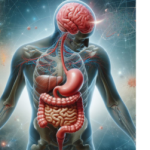When you ask individuals about their deepest desires, the overwhelming reply is often centered around the pursuit of happiness or the elements that foster it. In our rapidly advancing world, it becomes all too easy to become entangled in the pursuit of fleeting pleasures. For instance, when we enjoy a slice of cake, the immediate surge of dopamine that our brain releases creates an undeniable sense of gratification. This surge is a natural and instinctive response, a brief but powerful wave of bliss prompted by our brain's reward circuitry. Dopamine serves as a driving force, enticing us to engage in behaviors that yield instant rewards. Nevertheless, this euphoric sensation is often short-lived, frequently leaving us yearning for more before the initial thrill dissipates.
While indulging in a sweet dessert can certainly brighten your mood temporarily, it’s crucial to understand that such moments of pleasure are ephemeral. They can provide a brief escape from the rigors and stresses of daily life, yet they contribute little to our long-term happiness or sense of fulfillment. As we chase these transient joys, we may find ourselves trapped in a cycle of seeking higher highs, only to discover that true contentment remains elusive. This continuous loop of craving for more can ultimately lead to dissatisfaction.
 A classic scenario is when you treat yourself to a piece of cake or a few cookies after a long, exhausting day at work. The immediate rush of sugar combined with the dopamine release provides a fleeting moment of relief and happiness. However, once the sweetness fades and the initial joy diminishes, the underlying stressors of the day remain unaddressed. This often leads you to reach for another slice of cake, a few additional cookies, or perhaps another indulgent treat like ice cream or chocolate, perpetuating a cycle of temporary comfort.
A classic scenario is when you treat yourself to a piece of cake or a few cookies after a long, exhausting day at work. The immediate rush of sugar combined with the dopamine release provides a fleeting moment of relief and happiness. However, once the sweetness fades and the initial joy diminishes, the underlying stressors of the day remain unaddressed. This often leads you to reach for another slice of cake, a few additional cookies, or perhaps another indulgent treat like ice cream or chocolate, perpetuating a cycle of temporary comfort.
As this pattern of behavior continues, you may find yourself increasingly reliant on sugary foods to manage emotional stress and navigate challenging feelings. Over time, this reliance can lead to a cycle of overindulgence, with individuals perpetually chasing the next sugar rush to temporarily escape feelings of anxiety or unhappiness. Yet, even as each treat provides a moment of joy, a deeper sense of satisfaction and contentment continues to elude you.
This ongoing pursuit of transient pleasures can result in considerable negative consequences. Physically, such behaviors may lead to unwanted weight gain, energy fluctuations, and increase the risk of serious health issues, including diabetes and heart disease. Psychologically, they can foster feelings of guilt, shame, and heightened stress levels as you begin to recognize the unhealthy patterns forming in your life but feel powerless to alter them. The more you indulge in these fleeting pleasures, the more trapped you may feel in a cycle of discontent, unable to attain genuine satisfaction or happiness.
Conversely, true happiness represents a deeper, more enduring state of being. It transcends the momentary joy derived from indulging in sweets, focusing instead on cultivating a lasting sense of purpose and contentment in life. Genuine happiness stems from engaging in meaningful activities, fostering nurturing relationships, and contributing to causes greater than ourselves. It is cultivated over time through experiences that instill a sense of achievement, connection, and inner tranquility.

Family is everything
The bonds we share with others are among the most profound sources of our happiness. Spending quality time with family and friends, engaging in shared experiences, and creating lasting memories fosters a sense of belonging and support that enriches our lives far beyond the temporary satisfaction of a sugary snack. By prioritizing the cultivation and maintenance of these relationships, we can lay a solid foundation for enduring happiness and fulfillment.
In summary, while the instant gratification of indulging in sweets offers a moment of enjoyment, the profound joy derived from meaningful connections and enriching experiences truly enhances our lives. By focusing on cultivating these deeper sources of happiness, we can create a more fulfilling and content existence that far surpasses the temporary highs of transient pleasures.
Understanding the Neuroscience Behind Pleasure Response
When we partake in enjoyable activities, such as savoring a delicious dessert, our brain releases dopamine, a crucial neurotransmitter associated with the brain's reward and pleasure systems. Dopamine is an integral part of the brain's reward circuitry, which encompasses key structures like the nucleus accumbens and the ventral tegmental area. These areas play essential roles in our experience of reward processing and motivation.
As we take a bite of something sweet, such as cake, our sensory experience—the combination of taste, aroma, and texture—triggers a cascade of neural activities. This stimulation leads to a release of dopamine, which results in feelings of pleasure and satisfaction. This biochemical reaction serves as the brain's way of signaling that we have encountered something enjoyable, thereby motivating us to repeat the behavior. Evolutionarily, this mechanism is designed to reinforce survival-promoting behaviors, such as eating, by associating them with pleasure.

However, the pleasure derived from such indulgences is typically short-lived. The initial elevation of dopamine creates a fleeting sense of euphoria, but this feeling quickly diminishes. Once the sweetness of the cake subsides, the pleasure it brings diminishes as well, leading to a decline in dopamine levels. This temporary aspect of dopamine-induced pleasure often prompts individuals to seek out repeated experiences that can deliver similar dopamine surges. Consequently, one might find themselves reaching for another slice of cake or pursuing other forms of instant satisfaction.
Unfortunately, this transient nature of dopamine-fueled pleasure can create a harmful cycle of craving and overconsumption as we chase the next fleeting high, hoping to recapture that initial pleasurable experience. This ongoing cycle can ultimately jeopardize our well-being, leading to various physical and psychological issues over time.
It's vital to acknowledge that while dopamine-driven pleasures play an essential role in our brain's reward systems, they are not intended to provide lasting fulfillment. Instead, these moments of pleasure offer only a quick fix, a temporary escape from the more mundane or stressful aspects of daily life.
By understanding the neuroscience behind pleasure, we can better appreciate why certain activities are so alluring and why they often leave us feeling unfulfilled. This understanding also emphasizes the significance of seeking out more sustainable sources of happiness—those experiences that can provide a deeper sense of satisfaction and well-being over time.
Exploring the Dimensions of True Happiness
True happiness represents a stable and enduring state of well-being that encompasses a broader and deeper range of experiences when compared to the fleeting pleasure induced by dopamine. A sense of lasting contentment and fulfillment defines happiness, unlike the transient emotions that come with temporary pleasures. This enduring happiness, often referred to as eudaimonic well-being, emerges from diverse sources that contribute to a rich and meaningful life.
Key Elements Contributing to Lasting Happiness
Personal Growth and Development
A significant source of true happiness stems from our commitment to personal growth and self-development. Actively engaging in activities that challenge us and foster our intellectual, emotional, or spiritual growth is vital in cultivating a lasting sense of achievement and satisfaction. Whether it’s mastering a new skill, pursuing a beloved passion, or successfully accomplishing personal goals, the journey of growth and self-improvement contributes significantly to our overall sense of fulfillment.
Nurturing Fulfilling Relationships
Another critical component of enduring happiness lies in the quality of our relationships. Feeling emotionally secure and at home within our relationships provides a robust sense of belonging and support. Building strong and supportive connections with partners, friends, and family is fundamental to our well-being. These relationships offer companionship, love, and encouragement, making a significant impact on our happiness. Sharing our lives with others, experiencing mutual trust and respect, and having a reliable support system cultivates true happiness.

Altruism boosts happiness
Engaging in Meaningful Experiences
Participating in activities that provide a sense of purpose is an essential contributor to lasting happiness. These experiences may include engaging in fulfilling work, pursuing hobbies that ignite passion, or volunteering in ways that positively impact the lives of others. Meaningful experiences not only provide a sense of purpose but also contribute to the narrative of a life well-lived, enhancing our overall sense of satisfaction.
Understanding the Complex Interplay of Emotions
The concept of happiness encompasses a complex interplay of emotions and psychological well-being. It includes positive emotions such as joy, contentment, and love, alongside the capacity to cope with and recover from negative emotions like sadness, anger, and stress. Developing strong emotional resilience is vital for experiencing lasting joy and happiness. This resilience allows individuals to navigate life's challenges and fluctuations with a balanced perspective, maintaining an overall sense of well-being.
Unlike the brief bursts of pleasure derived from dopamine, which are intense yet fleeting, true happiness is about the cumulative effect of various positive experiences over time. It emphasizes the overall quality of our lives rather than the intensity of isolated moments. Achieving happiness involves nurturing meaningful connections and accumulating a series of accomplishments and enriching experiences that contribute to a joyful and meaningful existence.
In conclusion, while the pleasure derived from a sweet treat is undeniably delightful in the moment, the lasting happiness that stems from personal growth, meaningful relationships, and fulfilling experiences is far more rewarding. By prioritizing these profound sources of happiness, we can cultivate a life that is not only enjoyable in fleeting moments but also rich, content, and joyful in the long run.
The Article: Happiness vs Pleasure: Savouring the Moments That Matter Appeared First On Jane Stevens Nutrition.
